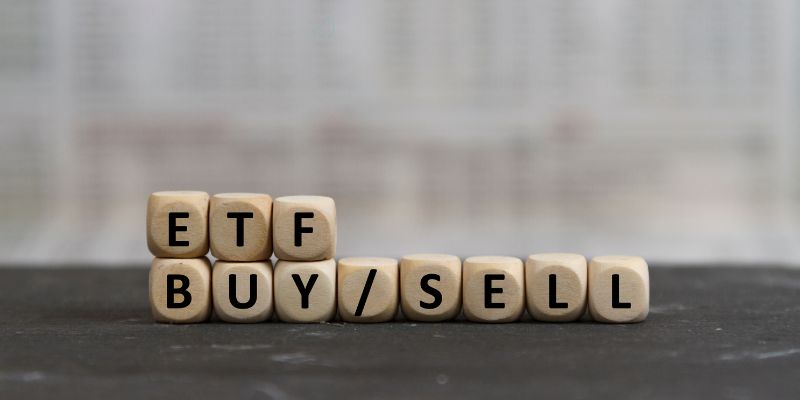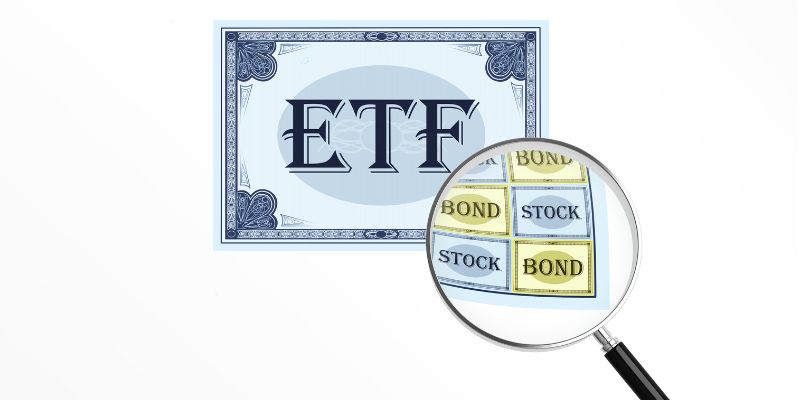An exchange-traded fund (ETF) presents an attractive alternative to investing in individual stocks. An ETF provides investors with access to a broad range of stocks and other assets while trading like a stock. There are many different types of ETFs available. Some of these indexes are based on major indices, such as the S&P 500 and the Nasdaq Composite. Other funds provide investors with exposure to particular regions of the world, for example, China or emerging markets. It can be difficult to choose one that is suitable for you. However, here is the list of 6 best ETFs you can buy in 2024 without any hesitation.
6 Best ETFs to Buy in 2024 for Investment Purposes
Here is a comprehensive list of ETFs to buy this year that generate the highest return.
Vanguard 500 ETF
The index fund was created by Vanguard. Vanguard S&P 500 ETF is one of the best S&P 500 index funds available.
The fund offers a very low expense ratio of just 0.03%, compared to a similar fund's average expense ratio of 0.78%. A fund with this lower expense ratio will charge investors $3 in annual fees for every $10,000 it receives, as opposed to $78 for a fund with a typical expense ratio.
It is one of the largest and most popular exchange-traded funds (ETFs). With its low cost and large size, the ETF is an excellent investment choice if you are seeking a broader market exposure. The ETF is considered a good buy-and-hold option for investors due primarily to its history, diversification, and blue-chip exposure.
Historically, investors have enjoyed excellent returns from the S&P 500. With dividends reinvested, the average stock market return over the past 50 years has been 9.4%. By investing in the Vanguard S&P 500 ETF, you can benefit from the market's return at an extremely low cost.
Invesco QQQ Trust
If you are interested in exposure to big technology stocks, it is a good idea to invest in the Invesco QQQ Trust. The ETF represents the Nasdaq-100 index, which includes the 100 largest nonfinancial corporations listed on the Nasdaq stock exchange.
Amazon (AMZN 0.8%), Apple (AAPL 1.1%), and Microsoft (MSFT 0.43%) are among the top stocks in the ETF, and their expense ratio is affordable at 0.2%. During the past decade, it has been one of the top-performing funds. Invesco QQQ Trust has returned over 395%, well above the 235% return of the S&P 500.
After experiencing a challenging bear market for much of 2022, the Nasdaq-100 began to rise in 2023 and into early 2024. A market boom usually begins with growth stocks rising faster than the overall market.

Vanguard Growth
As interest rates rose in financial models, growth stocks were pressured by rising discount rates for much of 2022 and into early 2023.
When so few growth stocks were delivering gains during that downturn, you might want to consider investing in the Vanguard Growth ETF. As the name implies, this ETF follows the CRSP US Large Cap Growth Index.
Apple and Microsoft are among the biggest holdings of the Vanguard Growth ETF, just like they are in the Invesco QQQ Trust and Vanguard 500 index. As of early 2024, the ETF held approximately 210 companies, among which were many other growth stocks.
This Vanguard Growth ETF has an expense ratio of just 0.04%, among the lowest in the industry. Due to its low cost, it is a good choice for investors seeking growth stock exchange-traded funds.
iShares Core S&P Small-Cap
With the iShares Core S&P Small-Cap ETF, investors have access to a broad range of small-cap stocks. Small-cap stocks are often more volatile than their large-cap counterparts since they are less profitable and well-capitalized. Therefore, small caps are more susceptible to a downturn since they may not have as much capital available.
By owning a large portfolio of small caps, this ETF helps mitigate some of that risk. As of early 2024, it held more than 665 stocks. The holdings of the company are fairly spread out. As a percentage of its total holdings, its top 10 holdings accounted for approximately 7.2%. Its expense ratio is very low at 0.06%, making it a cost-effective way to gain exposure to small-cap companies.

Schwab U.S. Dividend Equity (SCHD)
Schwab U.S. Dividend Equity ETF is an excellent choice for investors seeking dividend income, high-quality stocks, and capital growth. It is appealing to have a low expense ratio. It is the goal of SCHD to build a portfolio of companies with better fundamentals than their competitors.
There are approximately 100 stocks in SCHD's portfolio, most of which are large-cap value stocks. Several companies pay regular dividends. The majority of SCHD holdings are in industries such as healthcare, financials, and consumer goods, as opposed to the tech-heavy S&P 500.
Avantis U.S. Small Cap Value (AVUV)
The Avantis Small Cap Value ETF may be a good investment for individuals who believe that the market is favoring small-cap and value stocks. The company owns more than 700 stocks, and its focus is on U.S. small caps with high profitability and low valuations. In comparison with the Russell 2000 Value Index, AVUV holdings have higher profits-per-book values.
There is less than 10% of the fund's assets invested in its top 10 holdings, indicating the fund is well diversified. A majority of AVUV's assets have been allocated to financial, consumer goods, industrial, and energy sectors.
Conclusion
You may invest in exchange-traded funds regardless of your investment style or the kind of stocks you wish to own. The ETF market offers hundreds of ETFs that provide exposure to a variety of sectors and investing objectives. At a very low cost, these funds provide the opportunity to avoid some of the risks and volatility associated with individual stock investments. It's also worth considering ETFs if you want to invest in a given sector but do not have enough knowledge to pick stocks individually.




